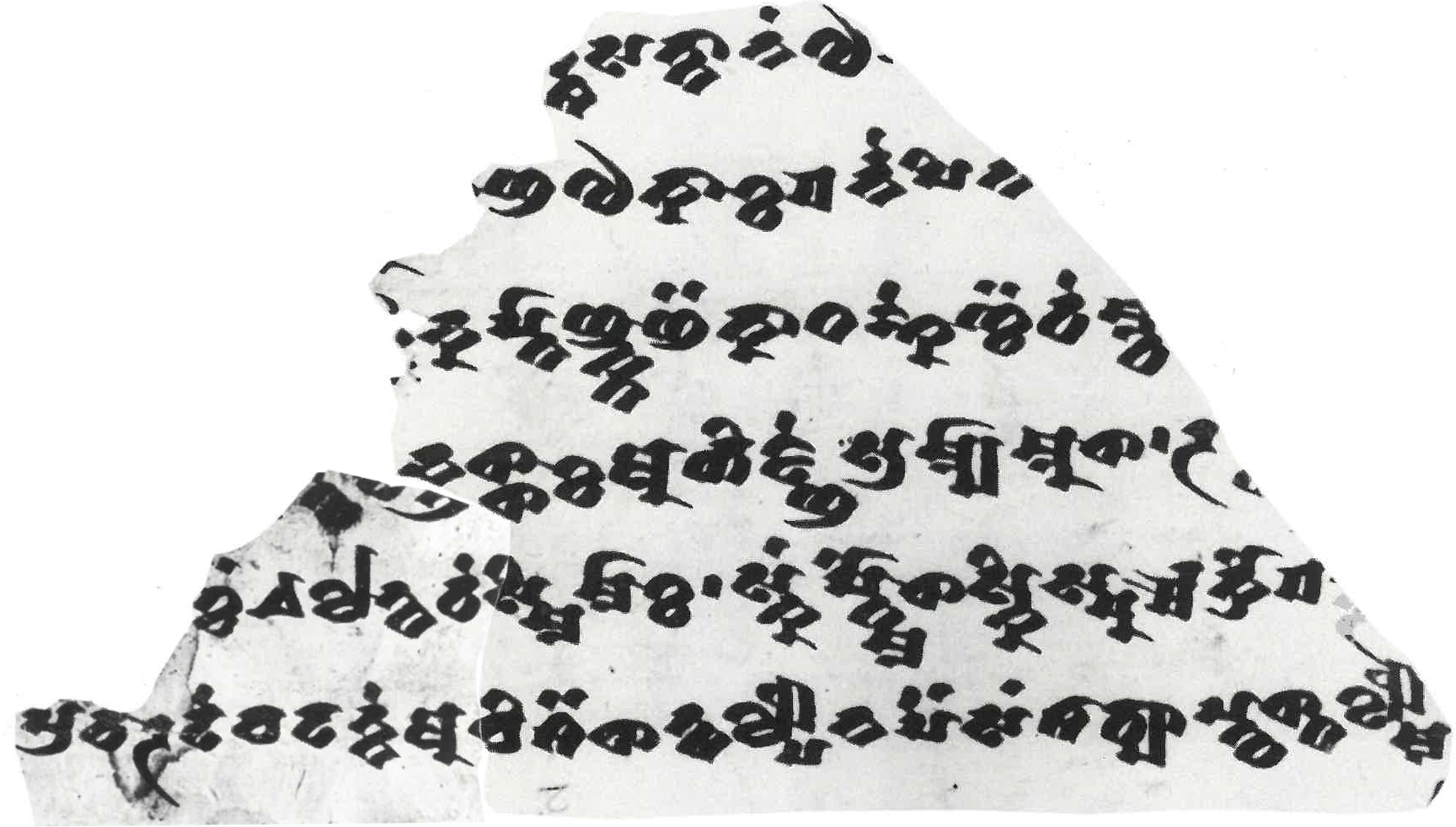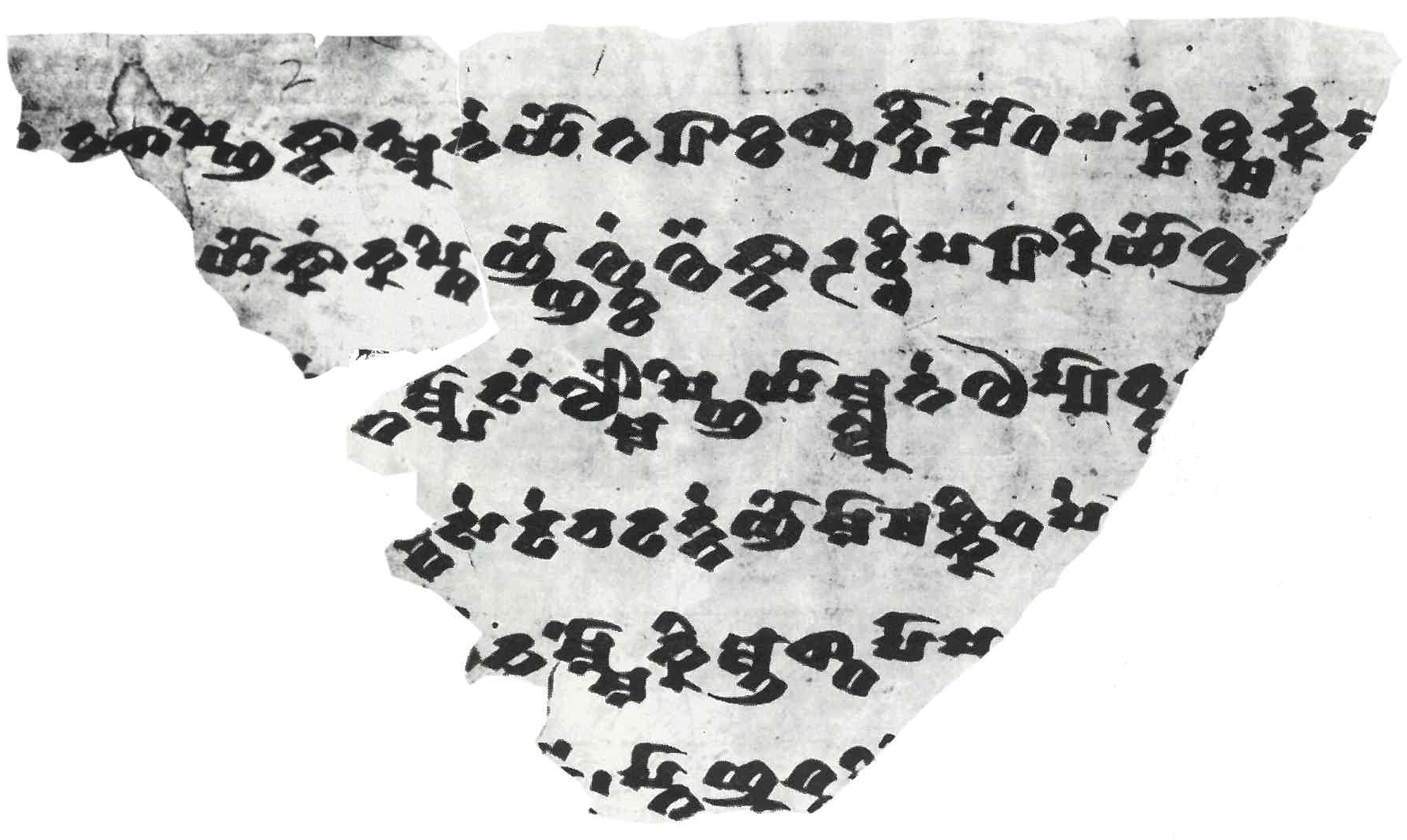Work in progress
YQ N.2 and N.6
| Known as: | YQ N.2 and N.6; YQ N.2; YQ 1.35; YQ N.6; YQ 1.40 |
|---|
| Cite this page as: | Adrian Musitz (translation). "YQ N.2 and N.6". In A Comprehensive Edition of Tocharian Manuscripts (CEToM). Created and maintained by Melanie Malzahn, Martin Braun, Hannes A. Fellner, and Bernhard Koller. https://cetom.univie.ac.at/?m-yqn2 (accessed 02 Jul. 2025). |
|---|
Edition |
| Editor: | Adrian Musitz (translation) |
|---|
Provenience |
| Main find spot: | Qigexing |
|---|
| Collection: | Xinjiang Museum (Ürümchi) |
|---|
Language and Script |
| Language: | TA |
|---|
| Script: | classical |
|---|
Text contents |
| Title of the work: | Maitreyasamiti-Nāṭaka |
|---|
| Passage: | Not yet identified |
|---|
| Text genre: | Literary |
|---|
| Text subgenre: | Drama |
|---|
| Verse/Prose: | prose; verse |
|---|
Object |
| Manuscript: | Yanqi |
|---|
| Material: |
ink
on paper |
|---|
| Form: | Poṭhī |
|---|
| Number of lines: | 8 |
|---|
Images
Transliteration
| a3 | /// [ś]ś· sa ntā naṃ o /// |
|---|
| a4 | /// ·[k]· – ¯ñ[ä] o kā¯ ¯k pa rne ṣi n· /// |
|---|
| a5 | /// [tti] ka ptā ñkta¯ ¯ñä kā ta ṅke¯ ¯ñcä ce mc[a] /// |
|---|
| a6 | /// ·w· [w]· ku s̝s̝a¯ ¯k a bhi jñe sra myā mu¯ ¯s̝ : ra· [dh]· /// |
|---|
| a7 | /// ¯[ñ]c[ä] e la¯ ¯nt ce smi mā¯ ¯k : skaṃ ṣtmo¯ ¯s̝ suki sṣu¯ ¯rm kro pa [nt]ra /// |
|---|
| a8 | /// pr· c·¯ ¯r de va da tte a vi śä¯ ¯s̝ tsa lpo na peṃ saṃ śā cyā pwa¯ ¯s̝t lmo /// |
|---|
| b1 | /// [la] n[ta]¯ ¯s̝ ṣñi knā nmu ne yo ta ryā¯ ¯k s̝pa tpī bo dha pa kṣi kma rka [m](·)a /// |
|---|
| b2 | /// yo kāṃ ka pśi ñño wkaṃ wä knā ra ddhi pa ryā ri yo wra [sa] /// |
|---|
| b3 | /// ·[e] ·tā mpo saṃ lmo ṣñi yā mlu ne o pyā cka [l](·)·[ṃ] /// |
|---|
| b4 | /// [¯]nt se de va da tte ño mā ma śki¯ ¯t ṣe /// |
|---|
| b5 | /// ·[aṃ] k· mmo ki ā s̝ta rpā ṣ(·)· /// |
|---|
| b6 | /// ··ä : ptā ñ[ka] t[ka] ·i[ṃ] /// |
|---|
Transcription
Translation
| a3 | ... in the continuity of... |
|---|
| a4 | ... even an outsider... |
|---|
| a5 | ... the Pratyeka-Buddhas arise. They... Cakravartin... |
|---|
| a6 | ... having removed... having done, as it were, six... of supernatural knowledge... magical power... |
|---|
| a7 | ... they give them many gifts... Always standing, they gather cause for bliss... |
|---|
| a8 | ... brother Devadatte, freed from Avīci, managing the home of a rich person among men... |
|---|
| b1 | ... exits. Through their own knowledge, thirty six conditions favorable to enlightenment... |
|---|
| b2 | ... with gold colored body, through manifold magic and miracle, beings... |
|---|
| b3 | ... sitting beneath a tree, remembering his own deeds... |
|---|
| b4 | ... I was the son of king..., Devadatte by name, a prince. |
|---|
| b5 | ... like a shellfish, pure behavior.... |
|---|
| b6 | ... Buddha the teacher... |
|---|
Commentary
Philological commentary
| * | Unidentified fragment. |
|---|
| n1 | skaṃ: Schmidt 1999c: 90 reads sukaṃ , but in view of the clear suk in the same line this reading remains doubtful. |
|---|
| n2 | pāṣ(ṣune): Schmidt 1999c: 91 reads pāp(ṣune), which is plainly contradicted by the facsmile in Ji et al. 1998: 382. However, he is right that there seems to be space for the l of pāṣ(lune), the reading of Ji et al. 1998: 206. |
|---|
| n3 | /// ··ä: Schmidt 1999c: 91 reads [··eṃ] instead. |
|---|
Remarks
| * | As pointed out by Schmidt 1999c (see also Schmidt 1999b: 277), the fragments YQ N.2 (YQ 1.35) and YQ N.6 (YQ 1.40) belong to the same leaf and join directly. The fragments are treated as one below on the basis of Schmidt's re-edition. Lines a1-a2 and b7-b8 are lost. |
|---|
References
other
Ji et al. 1998: 206; Schmidt 1999c
Bibliography
Ji et al. 1998
Ji, Xianlin, Werner Winter, and Georges-Jean Pinault. 1998. Fragments of the Tocharian A Maitreyasamiti-Nāṭaka of the Xinjiang Museum, China. Transliterated, translated and annotated by Ji Xianlin in collaboration with Werner Winter, Georges-Jean Pinault. TLSM 113. Berlin/New York: de Gruyter.
Schmidt 1999b
Schmidt, Klaus T. 1999b. “Review of: Fragments of the Tocharian A Maitreyasamiti-Nāṭaka of the Xinjiang Museum, China.” Tocharian and Indo-European Studies 8: 277–85.
Schmidt 1999c
Schmidt, Klaus T. 1999c. “Das Fragment YQ 1.40 + 1.35 der osttocharischen Maitreyasamitināṭaka-Handschrift des Xinjiang-Museums in Urumqi.” Münchener Studien zur Sprachwissenschaft 59: 89–93.




